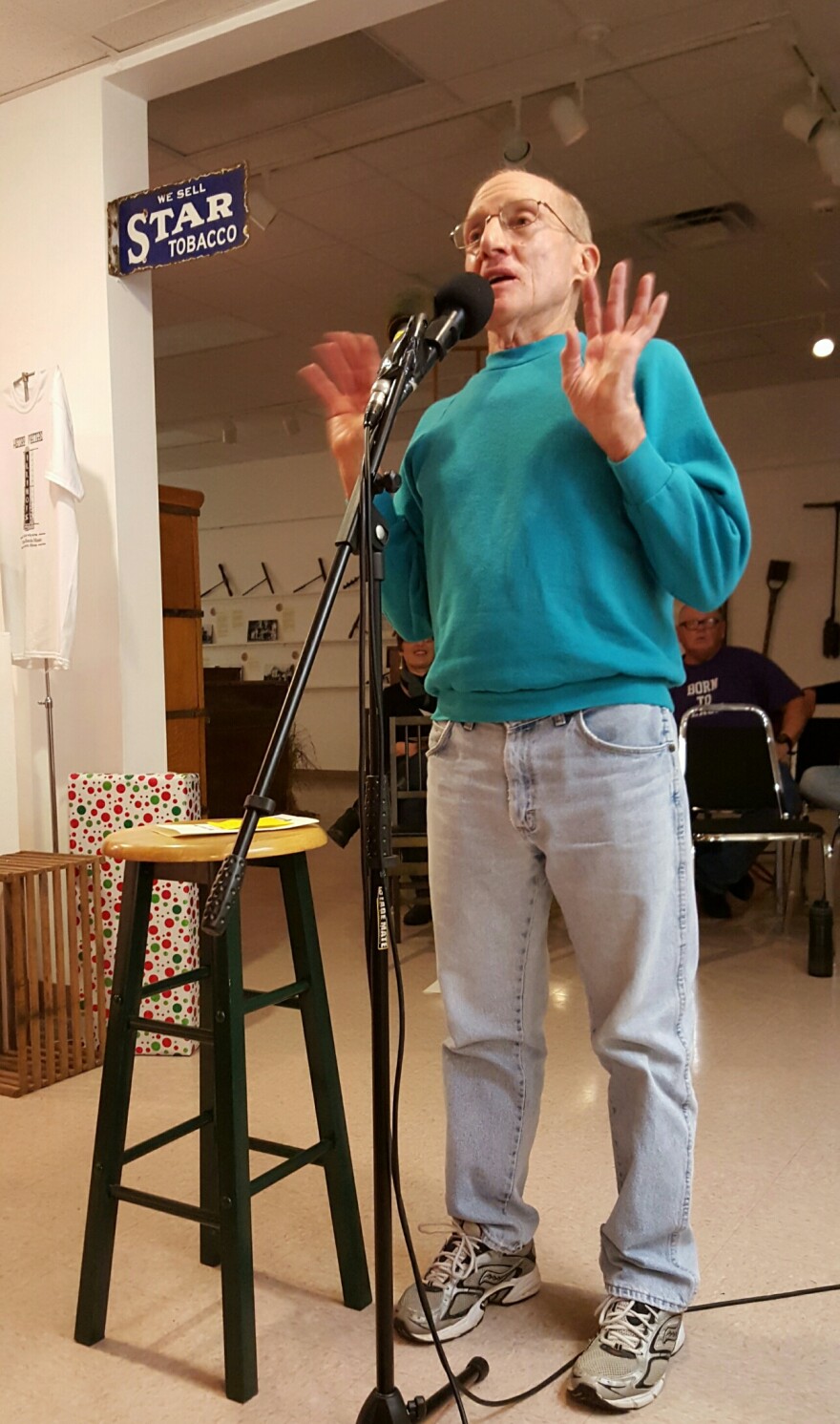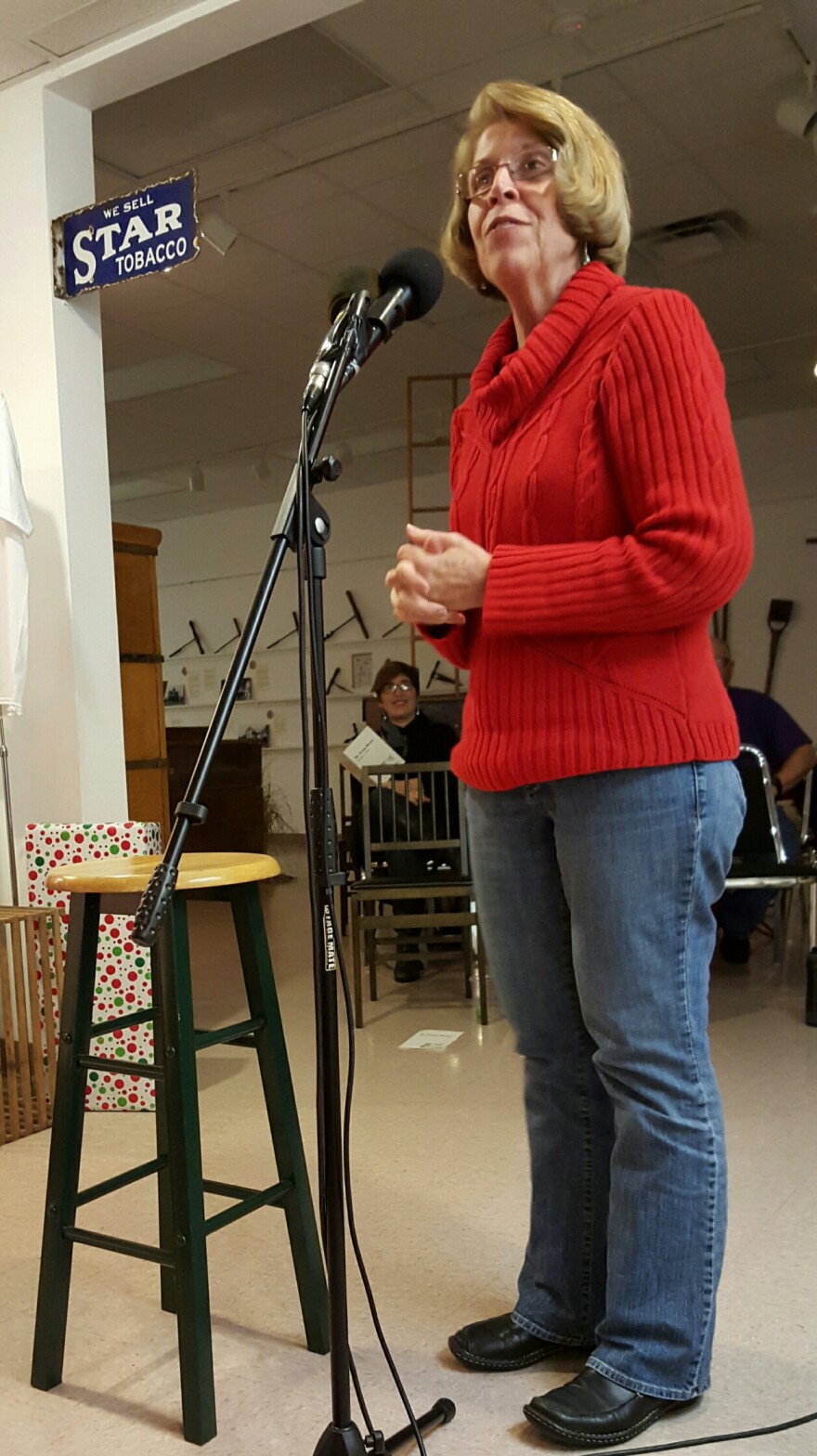Joel Gruver stood in front of a packed house at the Western Illinois Museum and talked about apprenticing with an old farmer in the hilly countryside of rural Maryland, where he grew up. He stretched his arms wide to illustrate how steep the hill was that he ran down one afternoon in hot pursuit of the farmer’s runaway antique tractor. The audience gasped and then laughed as Joel described catching up with the machine only to have a wheel pop off and bounce over the fence.
Joel was one of six storytellers to perform at My Farm Roots, a live storytelling event that I hosted in Macomb, Illinois, a small university town surrounded by tens of thousands of acres of farmland. The event, put on in collaboration with Tri States Public Radio, Western Illinois Museum, and Harvest Public Media, drew an estimated 80 people. It was a diverse crowd, including locals who grew up in Macomb, professors and students from the university, conventional row crop farmers, small market gardeners, retired folks, and kids.
After the six storytellers finished, I invited members of the audience to come up to the mic and tell their own farming tales. Five people did, sharing experiences of farming accidents, aggressive chickens, and the consequences of setting hay bale traps. The community talked and listened to each other for more than three hours.
By all accounts, it was a successful night.
My theory for why is rooted in the power of storytelling, which can catapult us over our wall-like opinions and beliefs into the land of someone else’s experiences. George Hennenfent, a storyteller at the event who grew up on a farm in western Illinois, put it like this:
“All of us become "barn blind" - we think the cattle in our barn are better than all of the other cattle because we see them all the time. We think what we are most familiar with is the best or normal,” George wrote in an email. “An event like [My Farm Roots] brings to light many other perspectives and viewpoints. It is a great antidote to barn blindness.”
I don’t think I was ever “barn blind.” But, not having grown up on a farm, I was perhaps “barn oblivious.”
That changed when I became the Harvest Public Media farm reporter for Tri States Public Radio, two organizations committed to telling stories about agriculture in the Midwest. In the past fifteen months, I’ve experienced the monotony of harvesting endless rows of corn, grimaced through the bloody C-section of a calf birth, and taken a long, cold walk with a veteran suffering from PTSD who has finally found comfort and purpose in farming. I’ve had the privilege of sharing these stories with Harvest’s large, and ever growing, audience.
Now, I’m off to a new adventure to work as an associate producer for Invisibilia at NPR in Washington, D.C.
When I miss Harvest and wearing carhartts to the office and smelling the hog truck, I’ll think back to the crowded room the night so many residents of Macomb came together to help each other see.
As for Joel’s story, he searched the creek bed on the other side of the fence for days, but never found the tire. Now, he told the audience, that farmland has been chunked up and sold off for housing. He still wonders if someday kids will dig it up like an artifact from a lost agrarian past.
Guest Storytellers
Joel Gruver

Barbara Harroun

George Hennenfent

Randy Solenberger

Terri VanMeenen-Misfeldt

Abby Wendle

Open Mic Storytellers
Gil Belles

John Lane

Marcia Moulden

Sydney Null

Wilma Ren







